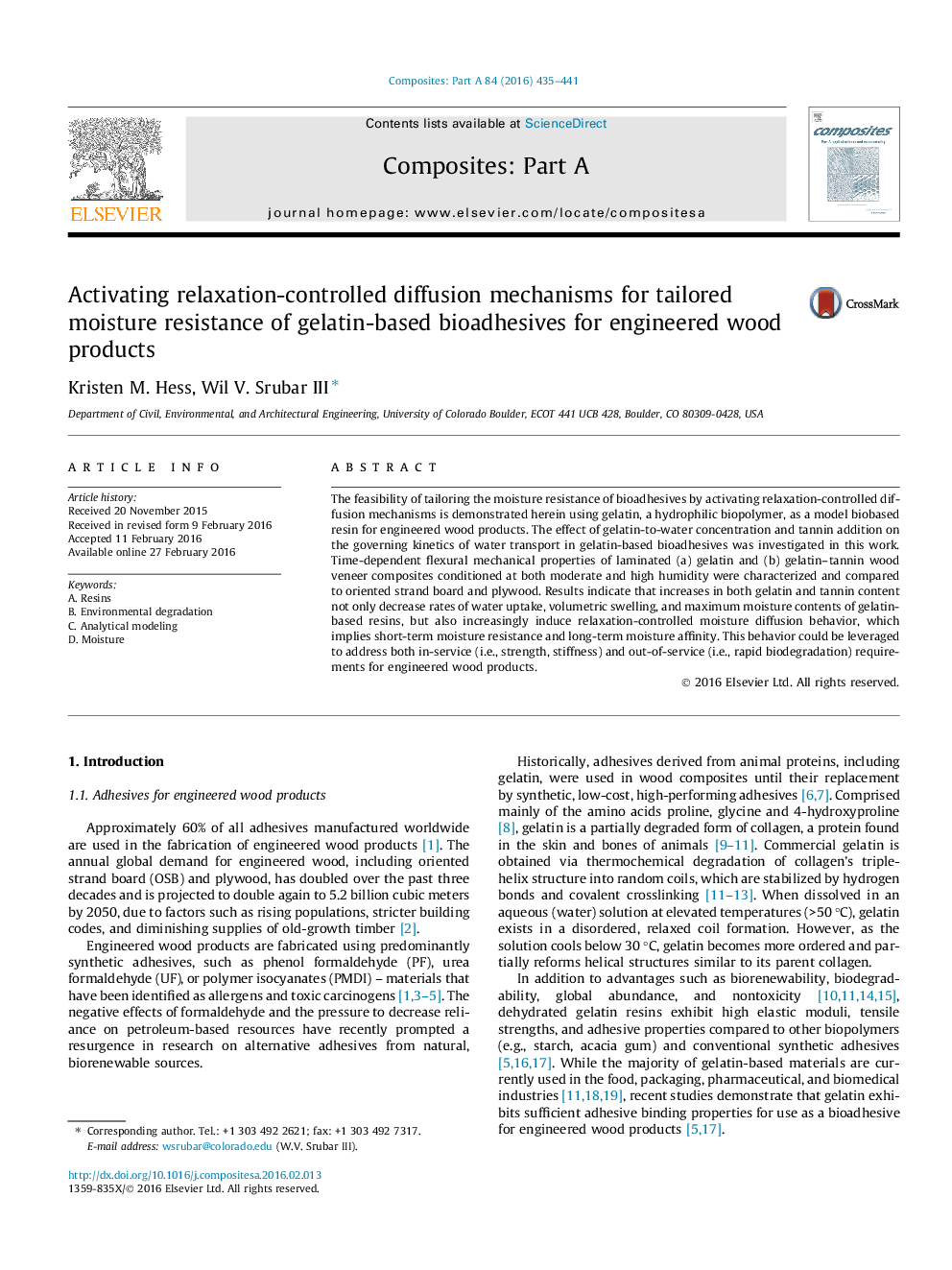| Article ID | Journal | Published Year | Pages | File Type |
|---|---|---|---|---|
| 7891186 | Composites Part A: Applied Science and Manufacturing | 2016 | 7 Pages |
Abstract
The feasibility of tailoring the moisture resistance of bioadhesives by activating relaxation-controlled diffusion mechanisms is demonstrated herein using gelatin, a hydrophilic biopolymer, as a model biobased resin for engineered wood products. The effect of gelatin-to-water concentration and tannin addition on the governing kinetics of water transport in gelatin-based bioadhesives was investigated in this work. Time-dependent flexural mechanical properties of laminated (a) gelatin and (b) gelatin-tannin wood veneer composites conditioned at both moderate and high humidity were characterized and compared to oriented strand board and plywood. Results indicate that increases in both gelatin and tannin content not only decrease rates of water uptake, volumetric swelling, and maximum moisture contents of gelatin-based resins, but also increasingly induce relaxation-controlled moisture diffusion behavior, which implies short-term moisture resistance and long-term moisture affinity. This behavior could be leveraged to address both in-service (i.e., strength, stiffness) and out-of-service (i.e., rapid biodegradation) requirements for engineered wood products.
Related Topics
Physical Sciences and Engineering
Materials Science
Ceramics and Composites
Authors
Kristen M. Hess, Wil V. III,
